Sainsbury's halts talks on Nisa buyout
Supermarket is waiting to see outcome of review of Tesco-Booker deal
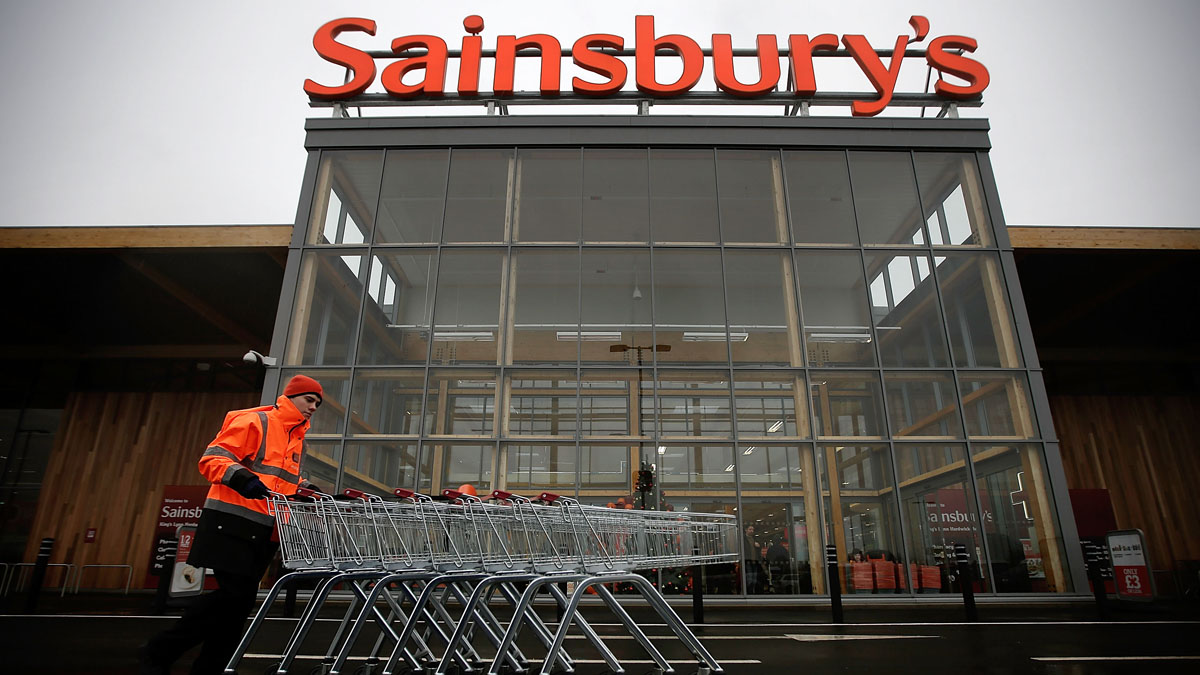
A free daily email with the biggest news stories of the day – and the best features from TheWeek.com
You are now subscribed
Your newsletter sign-up was successful
Sainsbury's may lose out on Argos - but it could be a 'blessing in disguise'
23 February
Sainsbury's has secured more time to decide whether it wants to stay in a bidding war to acquire Argos-owner Home Retail Group, but analysts believe it is now likely to lose out.
The Week
Escape your echo chamber. Get the facts behind the news, plus analysis from multiple perspectives.

Sign up for The Week's Free Newsletters
From our morning news briefing to a weekly Good News Newsletter, get the best of The Week delivered directly to your inbox.
From our morning news briefing to a weekly Good News Newsletter, get the best of The Week delivered directly to your inbox.
Having agreed a deal in principle and spending three weeks undertaking due diligence ahead of a firm offer, the supermarket was sensationally outbid at the end of last week by the South African retail giant Steinhoff, which owns furniture chains Bensons for Beds and Harveys.
The original 167p-a-share price tag of £1.3bn implied by the Sainsbury's bid has now been upped to a 175p-per-share £1.42bn. The group's shares soared 13 per cent to 173.5p yesterday, which analysts told the BBC meant "investors thought the winning bid would be nearer Steinhoff's… offer".
Sainsbury's now has until 18 March to submit a final offer - "the same day as Steinhoff’s put-up-or-shut-up deadline, potentially setting up an auction," adds The Guardian.
The question is whether the supermarket chain will up its bid and how high it would then be prepared to go.
A free daily email with the biggest news stories of the day – and the best features from TheWeek.com
Mike Dennis, a retail analyst at Cantor Fitzgerald, said he expected it to at least match Steinhoff’s offer. However, he also noted that as the latter's bid is all in cash rather than cash and shares, it will be preferable to investors, suggesting an equal bid might not be enough.
Steinhoff may also be prepared to go much higher yet: it's £14bn stock market value is almost three times its rival suitor's £4.8bn.
There are obstacles facing Sainsbury's bosses closer to home, too. Investors have been lukewarm on the deal since it was announced, with some suggesting Argos's sluggish sales growth undermines the perceived value of location synergies and a well-regarded delivery service.
If the supermarket group is forced to up its deal considerably, its share of the offer could go above the £1.2bn mark – 25 per cent of its market value – that would trigger a shareholder vote. It cannot count on the support of its largest investor, the Qatari Investment Authority, which is worried its shareholding may be diluted.
There are many who believe it might be best if it did not win. Cantor's Dennis said losing out on the deal might be "a blessing in disguise" - although Sainsbury's boss Mike Coupe, who has staked a degree of his reputation on the deal, may not be inclined to agree.
Has Sainsbury's buyout of Argos been derailed?
22 February
Sainsbury's bid to buy Argos may yet be derailed after a rival suitor trumped its £1.3bn offer and industry experts predicted the tie-up could be subject to a lengthy competition probe.
On Friday, South African retail conglomerate Steinhoff, which already has a UK high street presence with furniture chains Bensons for Beds and Harveys, sensationally turned the tables on the supermarket by offering £1.42bn for Argos owner Home Retail Group. This bests Sainsbury's by £110m, with the deadline looming for a final takeover approach to be confirmed.
Sainsbury's had sealed a deal in principle but has been undertaking due diligence over the past three weeks before finalising its 167p-per-share offer. It now has until 5pm tomorrow to up the ante, step back or request an extension that would require the approval of Home Retail bosses, says the Daily Telegraph.
Shares in Home Retail Group surged 12.5 per cent to close to 173p this morning, which the Daily Mail notes is just 2p short of the proposed 175p Steinhoff purchase price.
The problem for Sainsbury's is that it vowed not to overpay for a merger that has received an at-best lukewarm reception from analysts. With the Steinhoff bid having the advantage of being wholly cash, rather than cash and shares, it is likely a revised offer would need to be substantially higher.
One justification for upping the bid is the cash and loan book arbitrage Sainsbury's finance chiefs have uncovered on Home Retail Group's balance sheet, which they have previously claimed reduces the cash outlay to just £250m. "Sainsbury’s may well now consider a higher bid given that on paper, it looks like there are a lot of strategic and financing benefits", said analyst Claire Huff at RBC.
Another problem is the competition probe that industry sources told the Telegraph is the result of significant crossover between Sainsbury's and Argos in the areas of toys and small electrical appliances, such as kettles and toasters. If, as one source claims, this results in a fuller "two-stage" investigation, it will extend the approval time for the deal from a little more than a month to nearly seven months.
"While the inquiry is running, there's the concern that the uncertainty will worry staff, suppliers, shareholders and customers," said competition lawyer Alec Burnside.
Sainsbury's axes multi-buy deals after claims they cost shoppers £1,300 a year
11 February
Sainsbury's have become the first of the major supermarket chains to pledge to remove all multi-buy offers from their stores after claims they mislead shoppers into overspending by up to £1,300 a year.
An investigation by the Money Advice Service (MAS) found offers such as "buy one, get one free" led to more than three-quarters of people regularly spending more than they planned, Sky News reports. However, evidence shows few shoppers are able to grasp whether or not the deals are good value for money.
In a MAS survey, more than 2,000 consumers were asked to select the cheapest options from four sets of competing offers or price options similar to those they might find in a supermarket. Just two per cent selected the best-value option from all four sets, while more than a quarter couldn't spot at least one. You can take the quiz here.
Accompanying survey findings revealed that on average, shoppers were spending an extra £11.14 on each visit. With the average person visiting a supermarket 2.2 times per week, this means an overspend of as much as £1,274 per year.
After the report was published, it emerged that a number of major stores, including "big four" Sainsbury's, Tesco, Asda and Waitrose, are under investigation by the Competition and Markets Authority. This follows a so-called "super-complaint" brought by consumer organisation Which? last summer, which alleged multi-buy deals and other offers are designed to mislead shoppers, says the Daily Telegraph.
"Among the questionable deals Which? condemned were multi-buy offers that didn't reflect a real saving, reductions based on an ungenuine previous price and seasonal offers where the higher price only applied out of season," the paper explains.
Sainsbury's has already responded to this morning's MAS report by announcing it will end all multi-buy offers, such as "buy one, get one free" and "buy one, get one half-price", "in favour of lower regular prices", says the Daily Mail. The supermarket has been moving towards a simpler pricing strategy for the past year as it seeks to extricate itself from a painful price war across the sector.
Other supermarkets, including Tesco, have also hinted at the possibility of phasing out such deals, the Mail adds, but are yet to announce such a decision formally.
Sainsbury's bests 'big four' rivals again with another sales rise
9 February
Sainsbury's has continued to outperform its "big four" rivals and defy the rapid advance of discounters Aldi and Lidl, recording another rise in sales to cement its status as the UK's second-largest supermarket.
For the past six periods, the group has been eking out gains in the Kantar Worldpanel monthly sector-sales report. This reflects a blend of price discipline, growth in its premium Taste the Difference range and impressive footfall to its growing estate of smaller convenience stores.
Sales grew by 0.6 per cent for the 12 weeks to 31 January, the Financial Times notes, meaning Sainsbury's racked up almost £4.6bn and its market share edged higher to 16.8 per cent.
At the other end of the scale, Asda, which lost its position as the second-largest grocer last year, saw its sales decline accelerate again. At 3.8 per cent, the fall was the worst of any of the nine brands included in the report and its market share fell to 16.2 per cent, which, The Guardian says, will ramp up pressure on chief executive Andy Clarke ahead of its Christmas results next week.
Asda has been particularly hit because of its focus on price, which limits its unique appeal in the face of the onslaught from the German discounters. Morrisons and Tesco also continued to fall, but as fundamental restructurings are undertaken by their respective bosses, they managed to shrink the slide this time around to 1.7 and 2.2 per cent respectively.
As for Aldi and Lidl, their own gains rose to almost 13 and 19 per cent and their collective market share edged closer to the ten per cent level below which it dipped at the end of 2015. Both are planning major expansion this year that Kantar reckons will keep this share rising.
Among the other firms in the sector, The Co-operative continued to do well and recorded the best rise of the non-discount brands with 1.4 per cent. Sky News adds that the grocers now boasts the most footfall of any supermarket, which vindicates its focus on convenience stores at a time when shoppers are increasingly ditching the single weekly "big shop".
Waitrose saw growth in sales for the 91st consecutive period – which, the Daily Telegraph says, is currently the longest positive run for any supermarket – but this was down in the past three months at a marginal 0.2 per cent. Overall sales across the industry were up 0.2 per cent, despite ongoing price deflation of 1.6 per cent.
-
 The environmental cost of GLP-1s
The environmental cost of GLP-1sThe explainer Producing the drugs is a dirty process
-
 Nuuk becomes ground zero for Greenland’s diplomatic straits
Nuuk becomes ground zero for Greenland’s diplomatic straitsIN THE SPOTLIGHT A flurry of new consular activity in the remote Danish protectorate shows how important Greenland has become to Europeans’ anxiety about American imperialism
-
 ‘This is something that happens all too often’
‘This is something that happens all too often’Instant Opinion Opinion, comment and editorials of the day
-
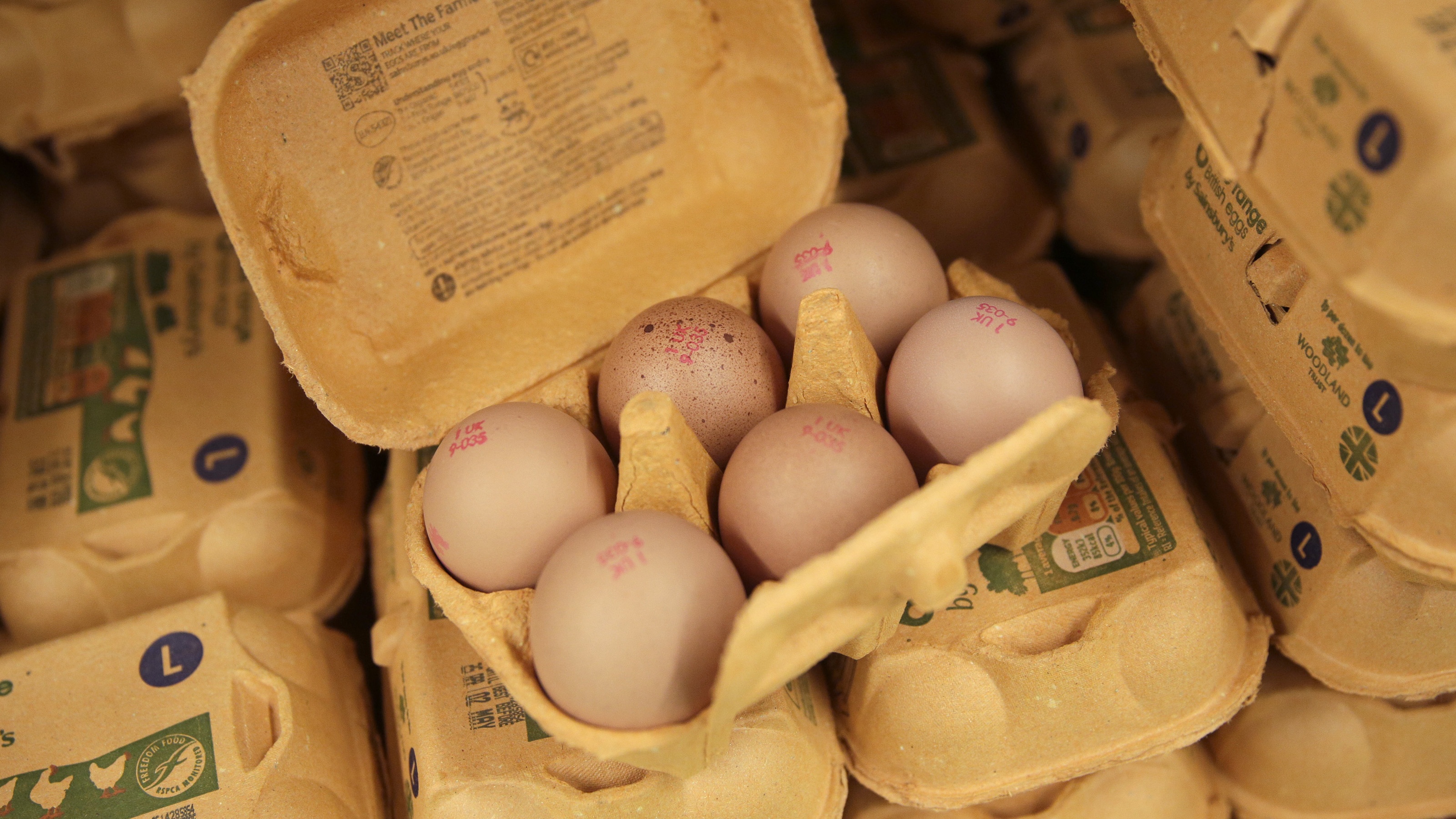 The UK’s Christmas egg shortage
The UK’s Christmas egg shortagefeature Supermarkets blame bird flu but farmers say unfair buying practices are driving them out of business
-
 Why Sainsbury’s chief Mike Coupe is stepping down
Why Sainsbury’s chief Mike Coupe is stepping downIn Depth The executive aggressively cut costs to compete with Aldi and Lidl, but failed to acquire Asda
-
 Sales of Christmas puddings down on 2018
Sales of Christmas puddings down on 2018Speed Read Supermarket data shows slump in demand for festive food
-
 Should supermarkets stop selling fireworks?
Should supermarkets stop selling fireworks?Speed Read Sainsbury’s bans the bangers from all of its stores in response to fears for pets
-
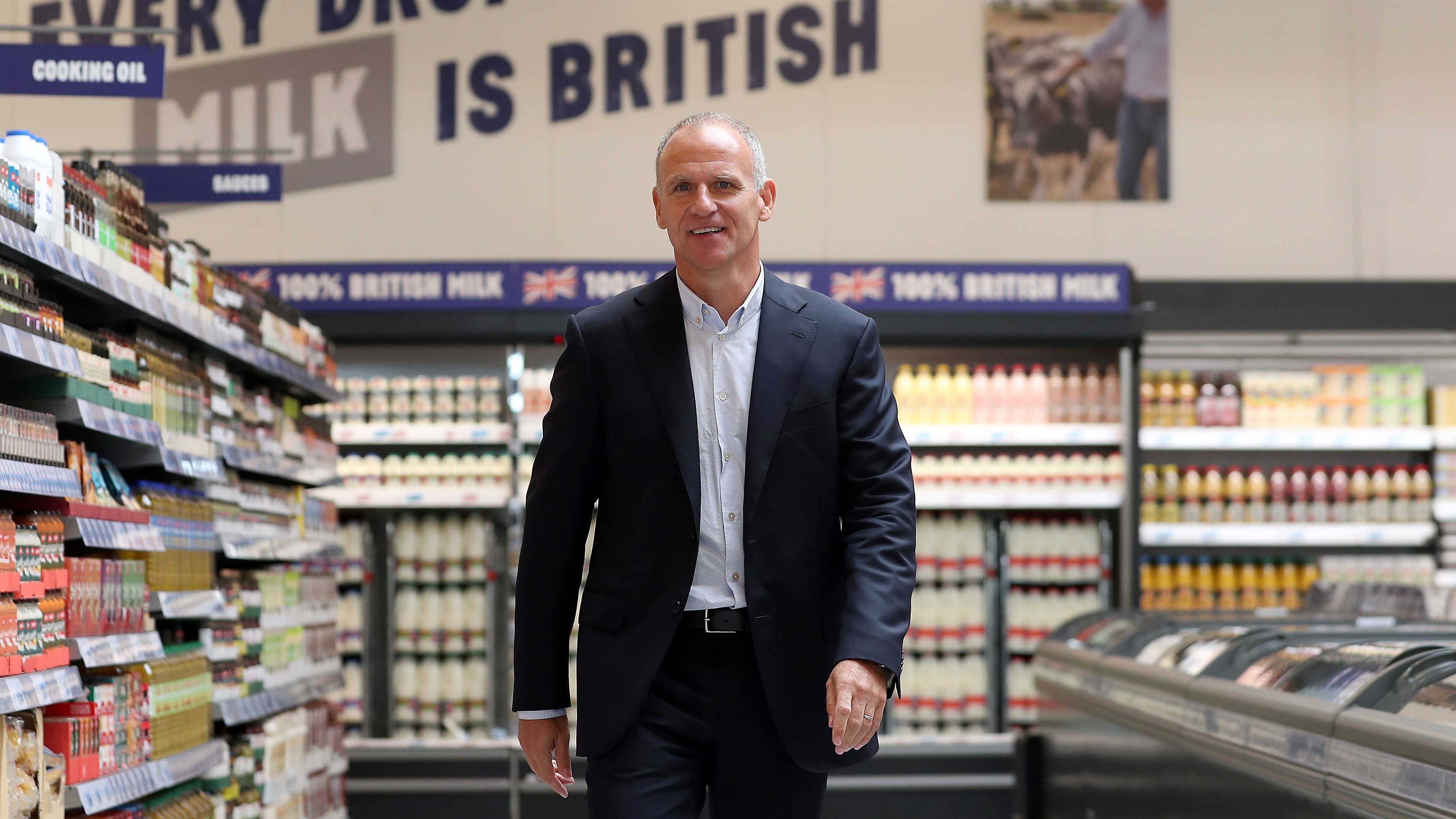 Why Tesco’s Dave Lewis is stepping down
Why Tesco’s Dave Lewis is stepping downSpeed Read The boss who turned Tesco’s fortunes around will leave CEO role in 2020
-
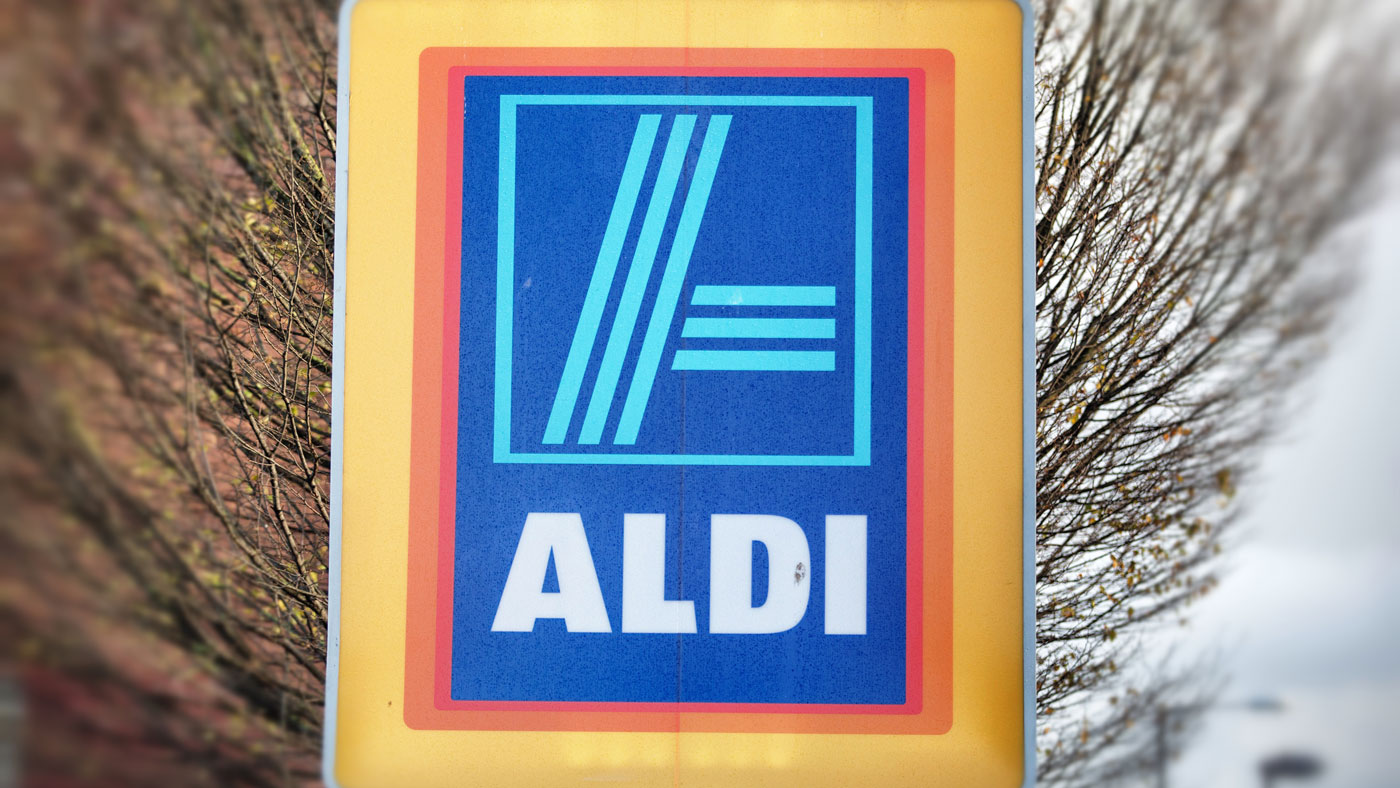 Why are profits collapsing at Aldi?
Why are profits collapsing at Aldi?Speed Read German discounter announces aggressive expansion despite sinking profits
-
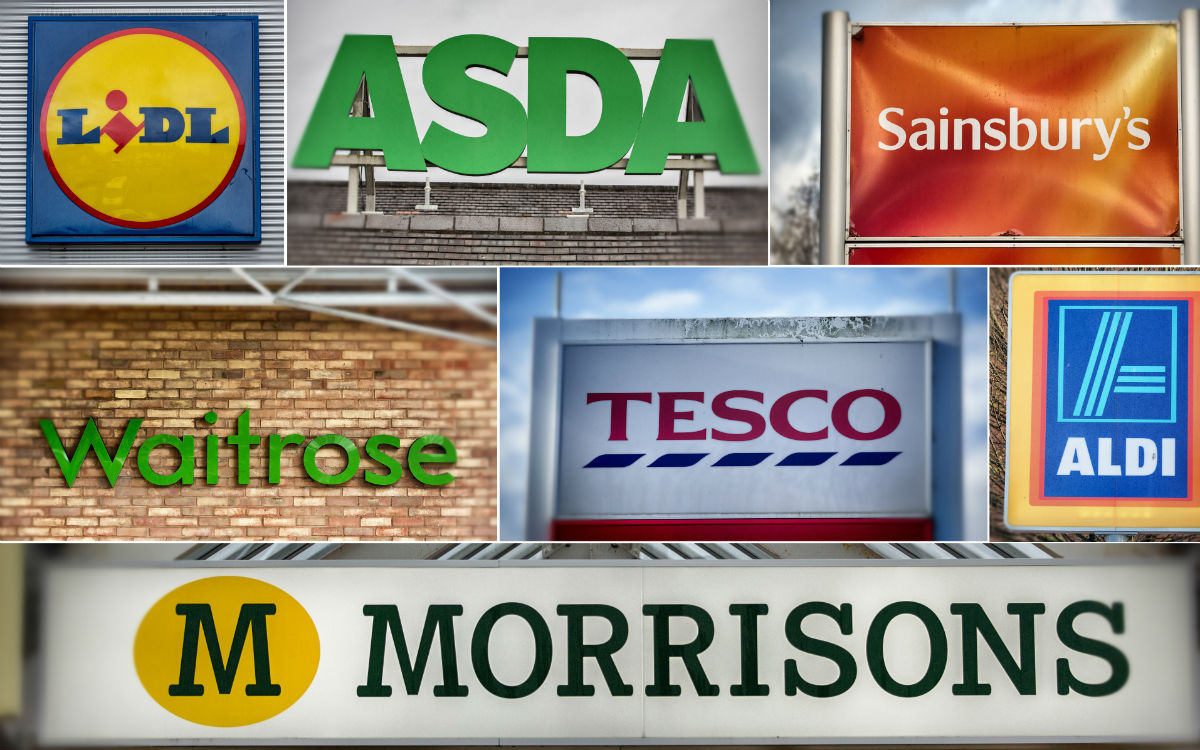 Why are supermarket sales flat?
Why are supermarket sales flat?Speed Read Brexit, fears of recession and price rises blamed for weak data
-
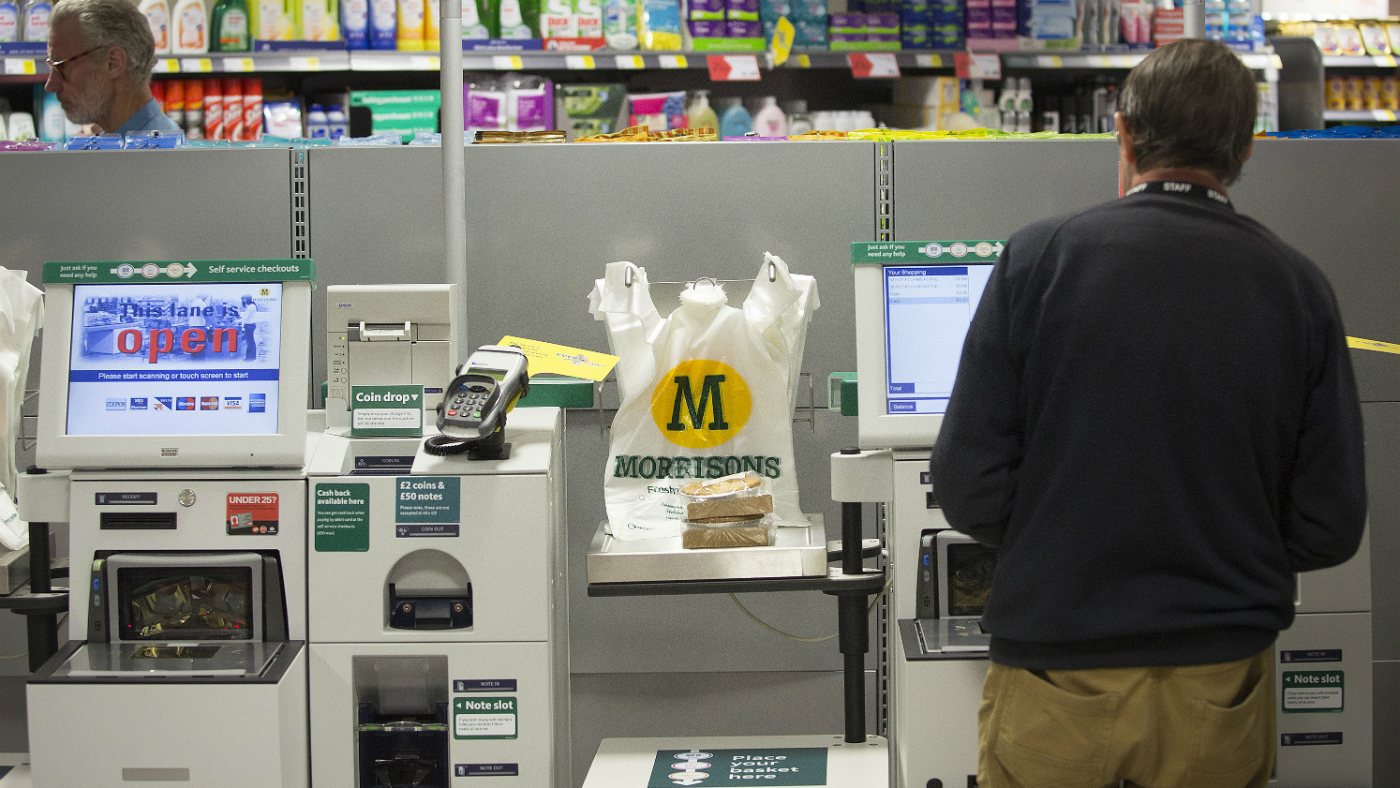 Will shoppers be charged for using self-service machines?
Will shoppers be charged for using self-service machines?In Depth MPs say 1p fee for using self-scan tills could raise £30m a year to ‘heal social divisions’